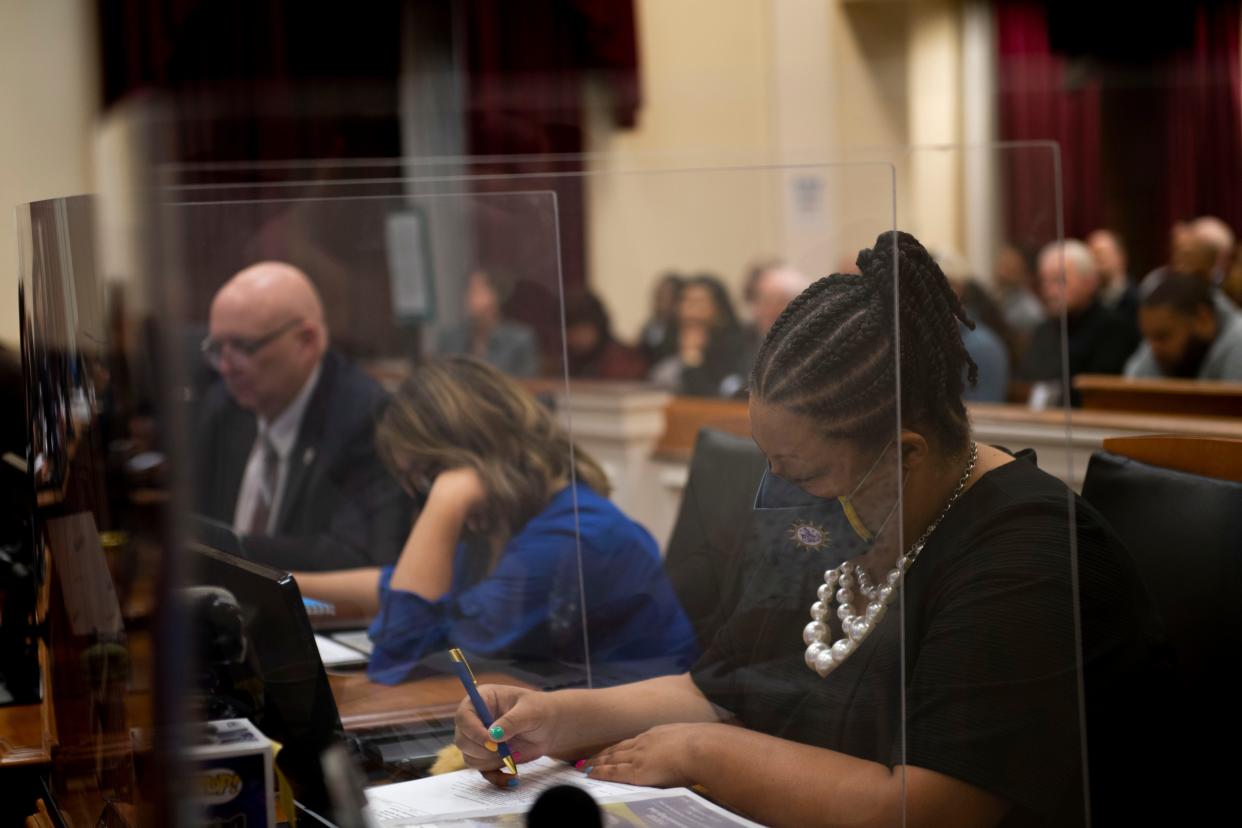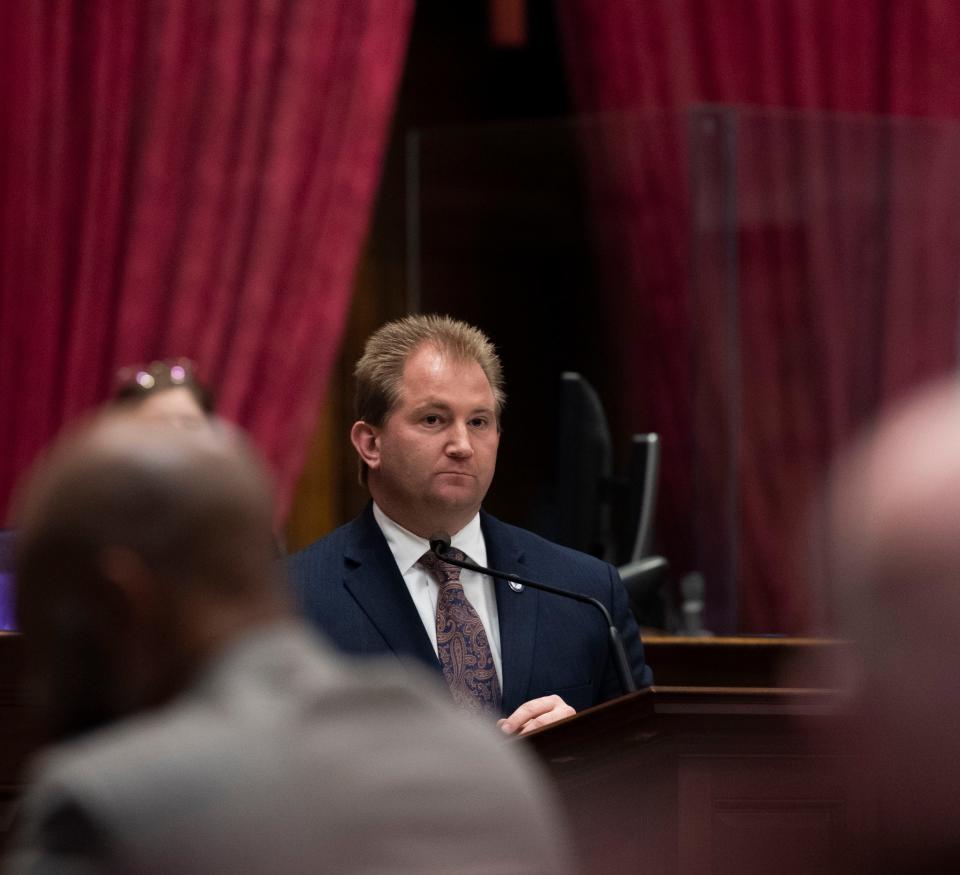Nashville sues state over new council-slashing law

Just days after Gov. Bill Lee signed a bill that will slash Nashville's council in half, the city has filed a lawsuit against the state claiming the law violates the Tennessee Constitution and the rights of Davidson County voters.
The new law requires city and metropolitan governments to cap their councils at 20 members. In practice, Metro Nashville's 40-member council is the only body in the state immediately impacted by the legislation. No other city or metropolitan government has a council larger than 20 members.
In the lawsuit, Metro argues the new statute dismantles the government established by voters when Davidson County and Nashville consolidated in the early 1960s, violating the home rule amendment of the Tennessee Constitution. "Home rule" bars the state from passing laws that impact only a particular county or city in its governmental capacity without local voter approval.
The lawsuit further states the statute's proposal to extend current council members' terms should Metro not meet a May 1 redistricting deadline violates a 1977 state constitution provision mandating four-year terms for county legislators. The same portion of the constitution also exempts Metro governments from a 25-member maximum for county legislative bodies — a clause Nashville attorneys say preempts state legislators' efforts to cap Metro council sizes.
Metro Nashville also filed a motion for injunction, imploring the court to temporarily halt the law's implementation to allow local elections in August to proceed as originally planned, with 40 council seats on the ballot.
"It's pretty clear this is an inflection point in history," Metro Legal Director Wally Dietz said during a Monday news conference. "The future of the relationship between the state and the Metropolitan Government will be dictated in large part by what happens in this lawsuit. We are either going to have a future where the legislature can do whatever it wants to do without regard for our rights, without regard for the people who live here … the other option is they have to respect our constitutional rights."
The lawsuit, filed in Davidson County Chancery Court, will be heard by a panel of three judges: one from Davidson County and two chosen by the state supreme court from West Tennessee and East Tennessee. The suit names Lee, Tennessee Secretary of State Tre Hargett and Tennessee Elections Coordinator Mark Goins as defendants. Metro Nashville attorneys will seek an expedited hearing, but the timeline for the process lies in the hands of the courts.
More:Tennessee vs. Nashville: What leverage does each side have in legislative battle?
Metro Nashville warns of council size reduction 'chaos'
Nashville Mayor John Cooper, Metro Legal Director Wally Dietz and several of Nashville's state representatives had repeatedly warned state lawmakers that such a law would cause "chaos" in Nashville's government operations and would be impossible to legally implement, hinting that the city would seek legal recourse.
These concerns, and a proposed amendment from Nashville's delegation of state legislators aiming to put the issue to a voter referendum and delay changes until the 2027 election cycle, were brushed aside by the legislature's Republican supermajority.
"If they had passed that amendment we would not be here today, because the bill would be constitutional and without objection from the Metropolitan Government," Dietz said.
The law's supporters say it brings Nashville in line with other city council sizes in the name of efficiency and is well within the state legislature's authority over cities.
"(The Tennessee General Assembly) created metros… and we're able to set those policies and procedures on how they can be structured," legislation sponsor and House Majority Leader Rep. William Lamberth, R-Portland, said in February regarding the bill's home rule considerations. "Now, who they elect, how many at-large (members)… there's lots of decisions they make on their own, but the actual structure and maximum size is this body's to determine."

Metro's lawsuit argues Nashville's consolidated government is "not simply an instrumentality of the state" but rather a local government that draws its power through the state constitution with the approval of Davidson County voters.
"In imposing these council-reduction requirements on Metro Nashville just before a local election, the General Assembly undermines the purpose of local-government consolidation, ignores numerous other constitutional prohibitions on such a reduction, and creates confusion and chaos among citizens and candidates," the lawsuit states.
More:State Republican leaders want to shrink Nashville's council. Here are the pros and cons.
The legislation, HB48/SB87, was approved by the Tennessee General Assembly along party lines: 72-25 in the House and 23-7 in the Senate. Sen. Mark Pody, R-Lebanon, who now represents part of Davidson County, joined Senate Democrats in voting against the measure. Lee signed the bill into law minutes after the Senate vote, a historically swift turnaround for a process that typically takes several days.
Unless the court grants an injunction, the current Metro Council is now tasked with deciding the new structure of a smaller council. Nashville's planning department has initiated the process of drawing new district lines, beginning with collecting the feedback and concerns of current council members and council candidates.
The new law gives Nashville until May 1 to complete these changes in time for the Aug. 3 local election. May 18 is the qualifying deadline for candidates, at least 30 of whom have campaigns and fundraising efforts well underway. If the city cannot meet this deadline, current council members' terms will be extended one year, and a smaller council will be elected in 2024 for three-year terms using the new district lines.
Metro Nashville council size law lawsuit by USA TODAY Network on Scribd
Metro Nashville motion for temporary injunction by USA TODAY Network on Scribd
Cassandra Stephenson covers Metro government for The Tennessean. Reach her at ckstephenson@tennessean.com. Follow Cassandra on Twitter at @CStephenson731.
This article originally appeared on Nashville Tennessean: Nashville sues state over new council-slashing law

